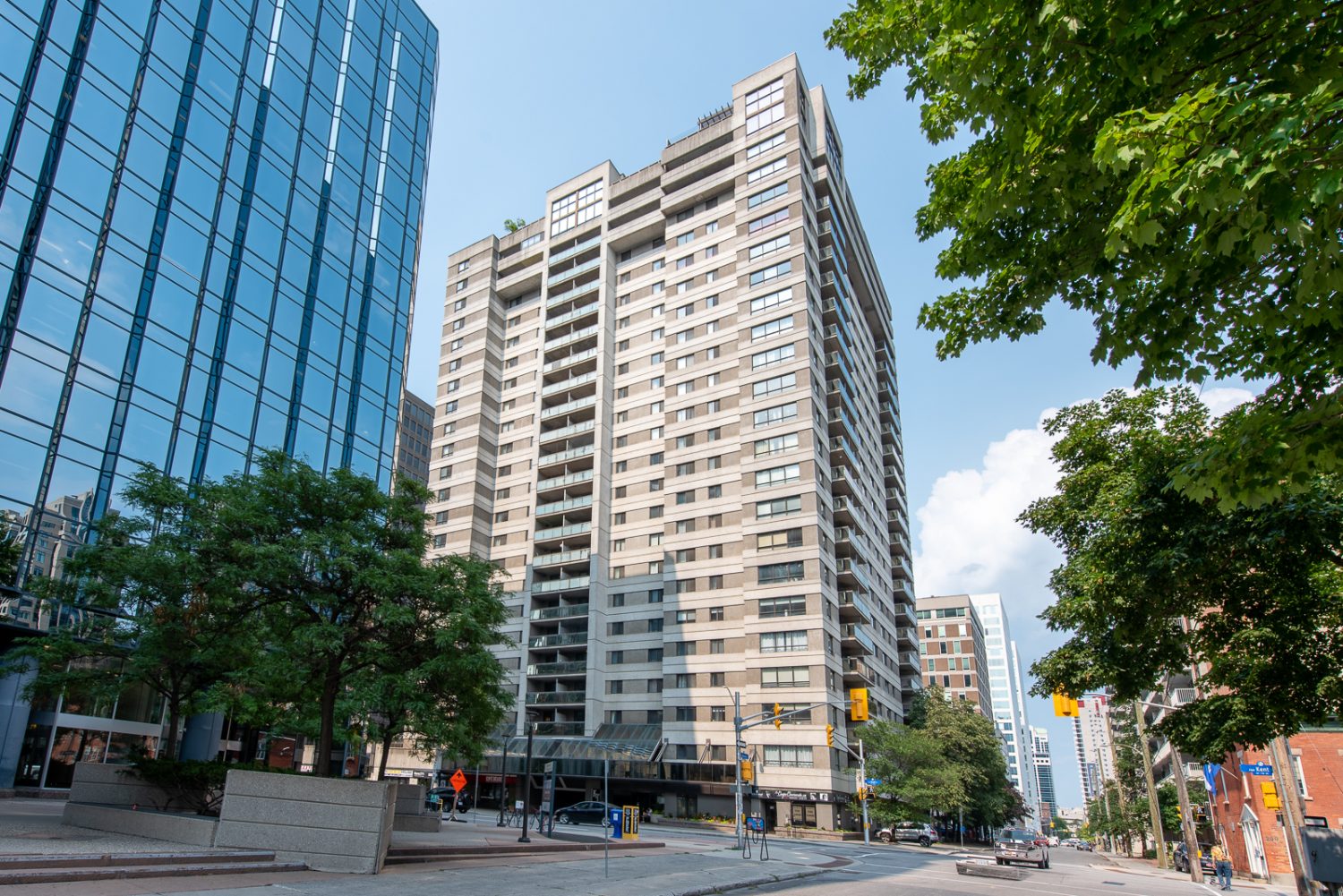OttawaAgent.ca

Condo Crisis in Ottawa?
Is there a condo crisis in Ottawa? The condominium apartment markets in Toronto and Vancouver have been playgrounds for foreign investment, domestic speculation, and retirement savings plan components for many years. Post-pandemic in particular, stories of decline have been swelling up and some say there is now an urban condominium crisis in Canada that is intertwined with pervasive concerns over lack of housing, affordable or otherwise.
An interesting article recently landed in my inbox. It’s from Deeded, an innovative real estate transaction closing management solution provider. The article quotes data primarily from the GTA (Toronto) but relates the data and market behaviour to urban Canada generally. I wanted to look at the data for Ottawa to see whether the crisis is taking over our City’s apartment condominium sector and impacting the broader market in the ways suggested in the article.
Click here to read or reference the article on Deeded.ca
I’m not equipped to perform a deep dive into underlying forces driving the development and sale of new construction condominium apartments in Ottawa. In this article I simply want to step through the Deeded piece and report on the pertinent Ottawa condominium market data to get a sense of how closely our market correlates with the data driving the reported condo crisis in the GTA.
The article cites the following observations and data:
- Lack of housing options, with zoning restrictions and red tape limiting development to high density projects.
- Demand for housing stock is not keeping up with supply, and government initiatives have not effectively done enough to help supply keep up.
- GTA condominium apartment sales are down 28% from 2023’s volume.
- New listings of condominium apartments in the GTA are up 70% over 2023.
- Assignment sales of new construction condominium units have consumed up to 40% or even 50% of supply in many projects.
- Condominiums became a hot investment commodity for everyday investors looking to build wealth for retirement.
- 80% of condominium units held by everyday investors are running cash-flow negative by as much as $1,000 or even $1,500 per month.
- Development plans for 24,000 new units in the GTA are on hold.
- Rising construction costs are making condominium apartment developments less financially attractive.
We can look at the hard data for the Ottawa market for some of these points, while the data is more difficult to acquire for others. Where we lack data that directly addresses these points, we can look at indicators.
Housing stock data from CMHC for 2011 and 2021 is available and provides an interesting look at shifting owner and rental occupancy of condominium vs. freehold properties over the intervening decade.

Ottawa Housing Stock Observations
- Overall, the trend in home ownership declined slightly from 2011 through 2021 (by 3.4%)
- The percentage of renters who live in a condominium increased by 40% (from 10.5% of renters to 14.7% of renters)
- As a corollary of the previous point, the percentage of condominiums that are owner-occupied dropped by 12.7% (from 76.8% to 67.0% of condominiums)
- Fewer than half of all renters live in a high-rise apartment building, and the percentage who do dropped from 2011 through 2021.
The substantial increase in percentage of renters who live in a condominium class property suggests that the prevalence of everyday investors adding condominium ownership to their retirement investment plan is a factor in the Ottawa market. It is possible that some of these condominium owners originally purchased a condo for their own residence and later rented it out either as an intentional investment or in favour of selling in a challenging market.
The table below shows the distribution of all housing stock in Ottawa.

My sense is that CMHC classifies many properties as semi-detached that in organized real estate we classify as row units, based on the relative volume of row unit vs. semi-detached MLS sales. Other interesting numbers of note:
- 20.9% of renters in 2021 lived in homes in CMHC’s semi-detached or double class
- 22.9% of renters in 2021 lived in an apartment in a building with fewer than 5 stories
The above data suggests that there is a reasonably strong mix of housing types in Ottawa. It’s interesting that 64% of renters in 2021 lived in an apartment building, (22.9% in buildings with fewer than 5 stories, and 41.1% in buildings with more than 4 stories). Since 14.7% of renters live in a condominium, this means far more rent from corporate landlords than from everyday investors. Also noteworthy is that 36% of renters live in something other than an apartment building, suggesting the diverse housing stock is serving renters as well as home owners.
Ottawa Condominium Apartment Re-Sale Market
We can objectively compare the Ottawa condominium apartment re-sale market to the GTA data presented in the Deeded article. Below is a summary of Ottawa MLS sales data with the annual trend compared to the GTA trend.

It is clear that the Ottawa market is not suffering like the GTA condominium apartment market. New listings are up and the current inventory level relative to sales sits at 4.2 months compared to 2.8 at the end of July 2023. If inventory continues to build, it will put pressure on prices as buyers enjoy more selection, giving them the edge in negotiations.
Cranes, cranes, and more cranes.
Have you noticed the number of cranes on the Ottawa landscape this year? Anecdotally, the majority of residential towers under construction (and there are plenty) are purpose-built rental projects, and most of those are within shouting distance of the LRT system.
There seems no doubt that developers in Ottawa are favouring rental projects to condominium apartment buildings in the current economic climate. This article from the Ottawa Citizen discusses one of many condominium apartment projects that have been cancelled in recent years:
Surface Developments Cancels Parkdale Lofts
Running on Empty?
Lastly, what about cash flow for those resilient and purposeful everyday condominium apartment investors who are holding onto their units and adding to the pool of rental properties in the City? Reported GTA suffering to the tune of $1,000 to $1,500 per month would certainly put a strain even on investors who are the most committed to a prudent long term buy & hold real estate investment strategy.
Let’s run a straw-man worst case analysis:
- you decided to buy a condo apartment as an investment right at the peak of the pandemic frenzy due to fear of missing out – in March, 2022, the average price of a 1-bedroom or studio apartment condo in Ottawa peaked at about $419,000
- typical condo fees for a newer-built 1-bedroom or studio apartment condo at the time ran about $400/month (fees vary a lot from building to building but as an investor you’d have targeted reasonable fees in a relatively new building)
- in the worst-case scenario, you snagged a variable rate mortgage in March 2022 at 2.0%, and now in July 2024 you’re sitting at 6.0% because you didn’t lock in or otherwise renegotiate your mortgage terms in the interim
- you rented the unit immediately in March 2022 for the average one-bedroom or studio apartment rate of $2,169/month (according to an Ottawa Real Estate Board MLS data search I performed for this analysis)
- your tenant moved out and you are faced with re-renting the unit at today’s average rate for the same unit – which turns out to be, according to the same MLS query, $2,213/month
With the above assumptions, your cash flow based on the minimum standard 20% down payment for the purchase of a property that is not your primary residence in March 2022 was negative $652/year or (-)$54/month. The worst-case assumptions given for today, assuming no change in property tax and condo fees, yield much stronger negative cash flow of $8,952/year or $746/month.
Ottawa condo investors are certainly not immune to the change in circumstances the Bank of Canada created by their anti-inflationary policy from 2022 through June of this year. The worst-case cash flow numbers are not quite as bad as those cited for the GTA, and it’s doubtful that anywhere near 80% of condo investors find themselves in this worst-case scenario.
Fixed mortgage rates also started declining ahead of the Bank of Canada’s change in direction. Investors able to renew today could secure a rate a little under 5%. As rates continue to decline slowly in coming months (presumably), cash flow prospects will improve.
Real estate investing is most prudently embarked upon for the long game. At times, cash flow may suffer. Contrast some negative cash flow into your real property investment against dollar cost averaging contributions to a stock-market based savings plan. Leverage and the application of other people’s money (your tenants) to your equity plus the ability to access your equity in the future on a tax-advantaged basis can cast temporary negative cash flow in a different light. As a starting point for considering the practical workings of real estate in an everyday investor’s portfolio, check out my video about Granny’s House.
